Time is running out for nature. Species and habitats are being lost at an unprecedented pace, and natural ecosystems continue to be degraded at an increasing rate, particularly in Africa. And yet, without nature, we are not going to solve the climate crisis.
Recognising the urgency of protecting biodiversity globally, more than 190 countries committed to the “30x30 target” at COP15 in Montreal last year, to reverse the unprecedented destruction of nature by effectively conserving 30% of the world’s land and oceans by 2030. However, the reality is that in the world we live in today, nature conservation and restoration is rarely a viable or competitive form of land use.
We need an urgent step change and rethink
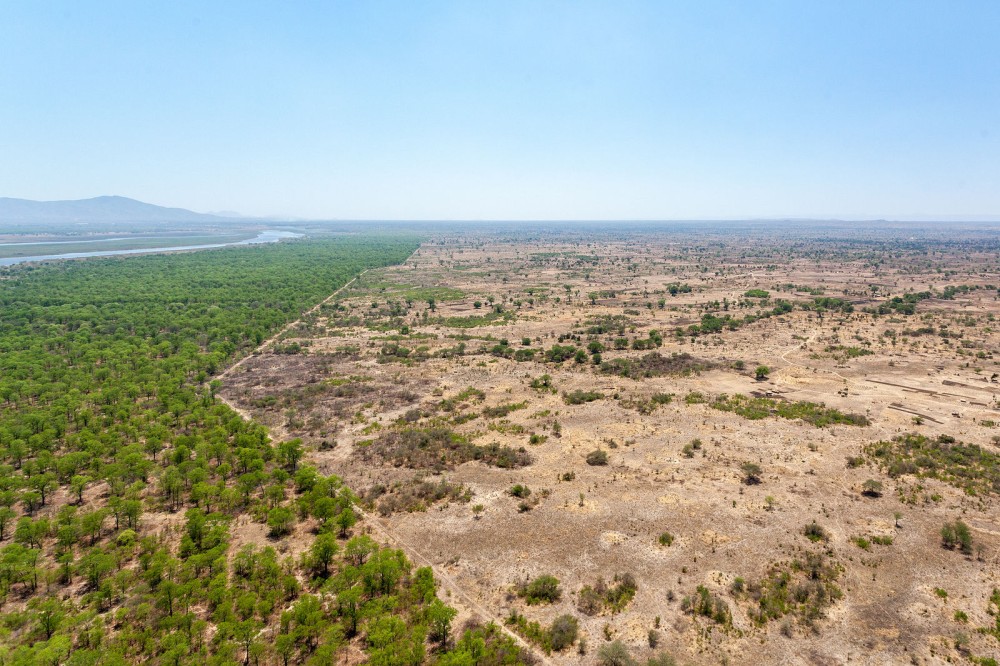
People are both the greatest threat and the most important custodian for nature. Most of our planet’s remaining nature is in developing countries, where population growth is exponential. In these countries, economic development is largely driven by extractive forms of land-use, in turn motivated by the need to sustain a growing population, as well as to diversify and develop their respective economies. The result is that this is transforming and consuming the very system that we all depend on.
Africa is one of the last three nature sinks in the world. It contains the second largest rainforest on Earth and hosts 25% of the world’s biodiversity, but it receives only 3% of global biodiversity funding. Considering its many challenges, it is logical to assume that African countries will not prioritise biodiversity conservation unless new thinking is applied to an old challenge: how do we better valorise conserved and restored natural capital equitably so that its true value as a contributor to planetary health is recognised and its benefits are enjoyed by the very people who take care of it?
Accelerating progress towards achieving the 30x30 targets requires a fundamental change in conservation and restoration finance. The missing piece is a reliable currency for nature to provide a foundation for outcomes-based transactions between funders and landowners or managers to incentivise nature conservation and restoration. Critically, it also needs to ensure that indigenous people and local communities are fairly compensated for the opportunity costs of conserving and restoring nature for the benefit of the world. We need to develop a transparent and traceable market that enables these efforts to scale and be sustainable for the long term. In this way, we can create a green economy for Africa as an export product to the rest of the world.
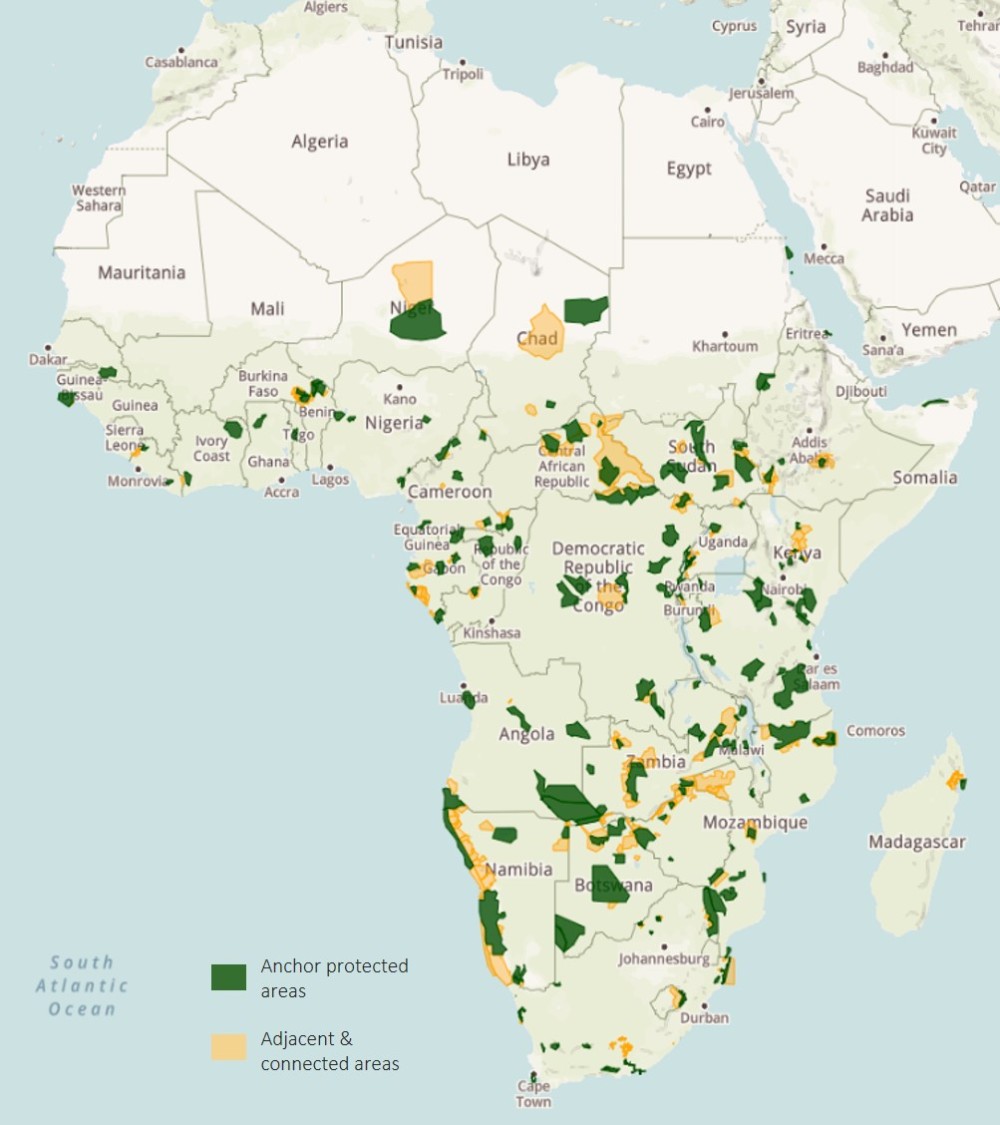
In just over 22 years, African Parks has developed the largest and ecologically most diverse portfolio of protected areas under management of any conservation organisation on the continent. Our goal is to manage 30 parks by 2030, ensuring that 30 million hectares of intact nature receive long-term protection. Jointly with other conservation organisations, we aim to establish a backbone of highly intact and functioning ecosystems across the continent that build the foundation for broader landscape level restoration, ultimately enabling Africa to reach the required 30%. This vision requires a significant increase in funding, and we strongly believe that outcomes-based financing, through crediting nature, can help unlock this.
Introducing Verifiable Nature Units
In this spirit, African Parks has developed an approach for an outcomes-based financing mechanism, referred to as a Verifiable Nature Unit (VNU).
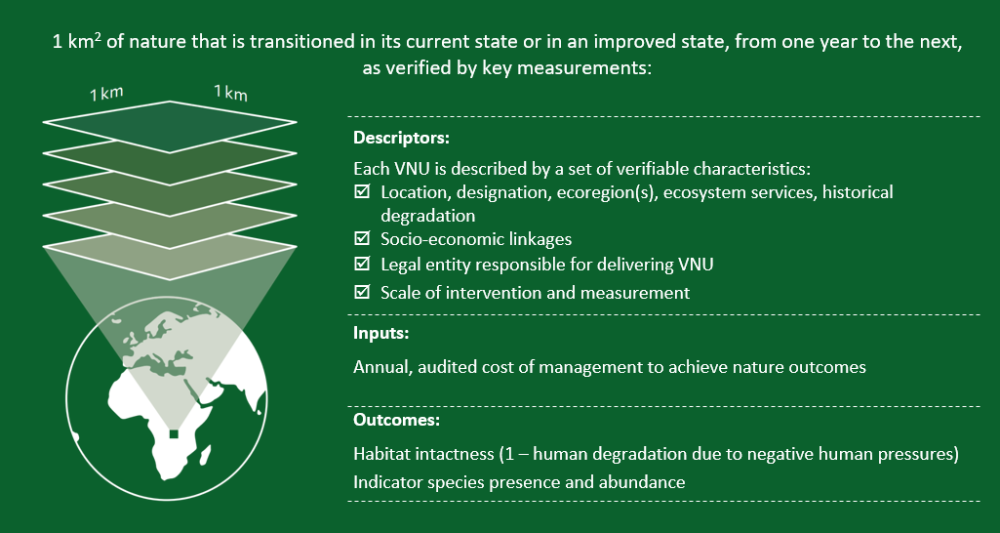
The primary objective of these VNUs is to ensure that nature conservation and restoration becomes a viable and competitive form of land use. It is important that this approach is scalable across all ecosystems and land use types, from a smallholder farmer restoring degraded land or shifting from agriculture to nature, a local community forest conserving a few acres of natural forest, to a national park encompassing millions of acres of protected area.
Moreover, incentivizing nature restoration, where areas can be allowed to shift back from a state of degradation to a state where nature is capable again of providing its services, will mean a paradigm shift in changing the historical land use choices made. These transactions will only work if there is a reliable measurement to confirm the outcomes – the purchasers of these nature claims must be comfortable with what they are purchasing. Equally, the funding gap for nature is not going to be filled by philanthropy or institutions alone and thus the private sector must become more involved. To enable this, we need a mechanism based on outcomes rather than activities, providing transparency on the data and measurements being used as evidence and allowing third-party verification to double-check and validate the accuracy of the data points.
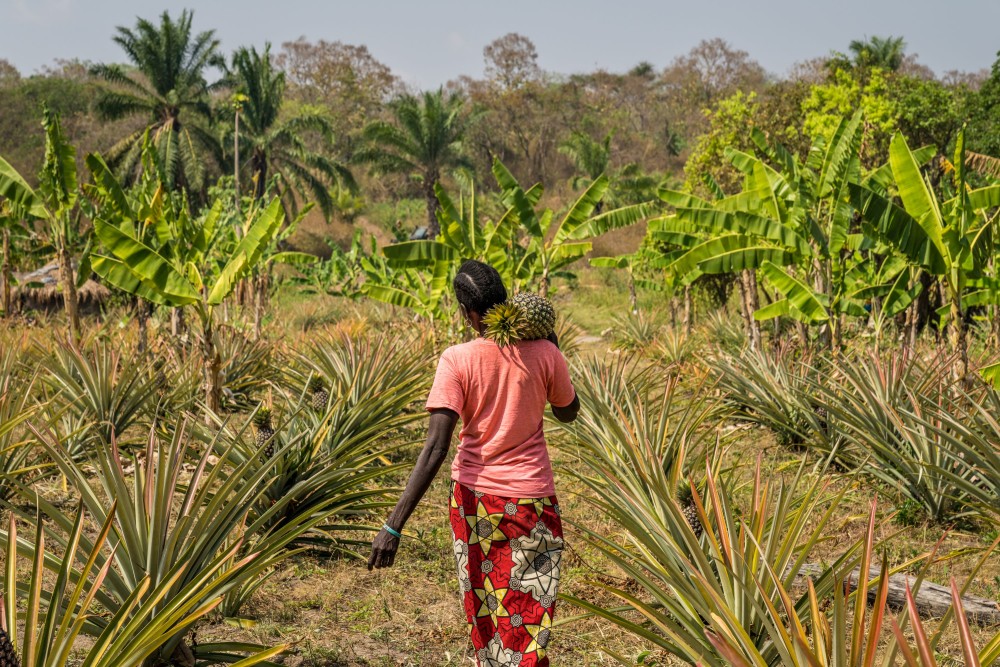
Simplicity and replicability are tremendously important because this approach needs to be accessible to all landowners and managers, having also been specifically designed for regions with challenges in governance structures and infrastructure. These areas, not coincidentally, tend to be the places where nature is most at risk and funding is most desperately needed.
We will learn as we go
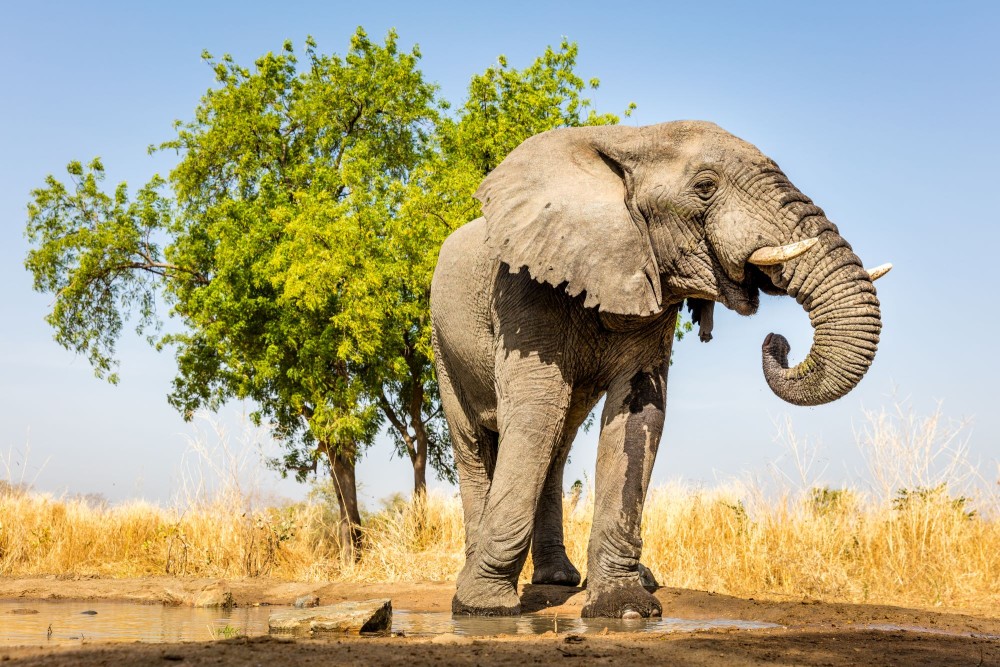
There is no time to lose – we must embrace the tech sector approach and be prepared to 'move fast and adapt,’ using established and effective ways to measure outcomes with a methodology that is proven today, constantly iterating and improving as new technology enables better approaches. We believe that a significant amount of field testing, along with coordination with the scientific community, is a good mechanism for making it work. The results of this approach are twofold – it will channel money into initiatives that have proven results, and, because it’s an outcomes-based funding mechanism, it will revolutionise the conservation sector funding model.
New technology and ‘big data’ will enable us to overcome the biggest challenges in this step change, through improving the cost effectiveness of measurements and increasing accessibility and scale-up across different users, from smallholders up to large landowners and land managers. The Landbanking Group (TLG), with decades of catalytic impact in corporate sustainability, climate, and nature, is our strategic technology and transaction partner, with the specialisation needed to realise the VNU proposition. TLG has developed a scalable platform for nature finance and will support this effort with an innovative approach to measurement, reporting and verification.
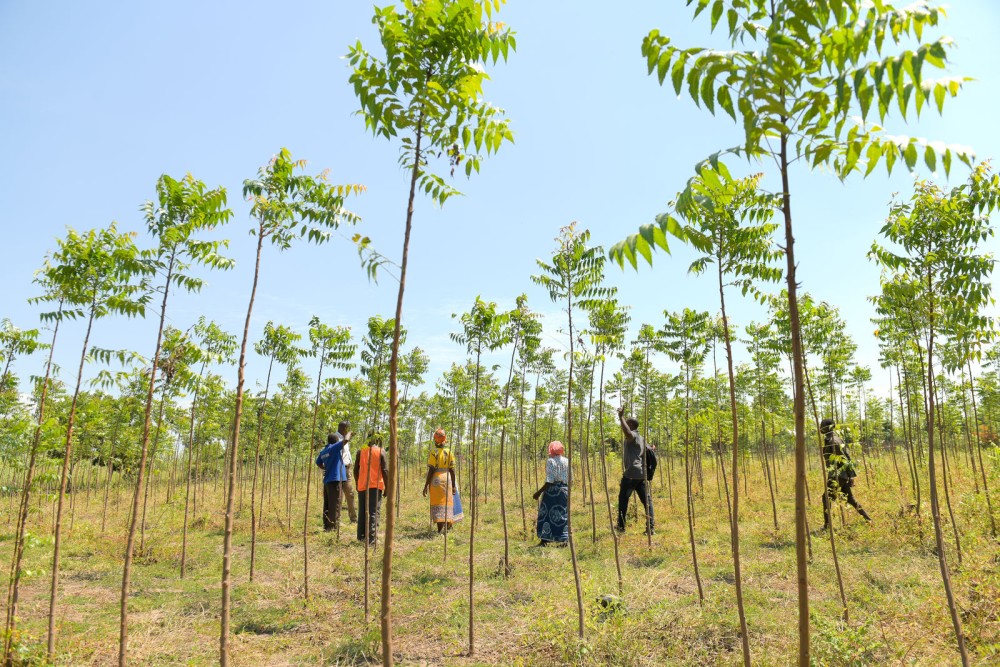
We are optimistic. African Parks is piloting VNUs in three parks around the Congo Basin and Lake Chad, critical regions for conservation to achieve global biodiversity and climate targets. Baseline data collection has commenced in 2023, with follow-up monitoring periods planned for 2024 and 2025. The pilot projects aim to issue VNUs for 2024 and 2025. Based on the success of these pilots in 2024, the VNU will be rolled out across other protected areas in Africa, and we are in discussions with conservation organisations to scale the approach across all ecoregions and land-use types globally.
As President Ruto of Kenya said in his speech at the Africa Climate Summit in Nairobi earlier this year, “Delivering prosperity and wellbeing for Africa’s growing population without pushing the world deeper into climate disaster is not an abstract proposition or mere wishful thinking, it is a real possibility proven by science and affirmed by emerging experience.”
08 January 2024 - Helge Mahne, Global Funding Director, African Parks Network
Your Support Goes a Long Way
At African Parks we are working everyday to protect Africa's last wild landscapes. By donating to us, you are making a difference and are giving hope to people and wildlife across the continent.
Donate